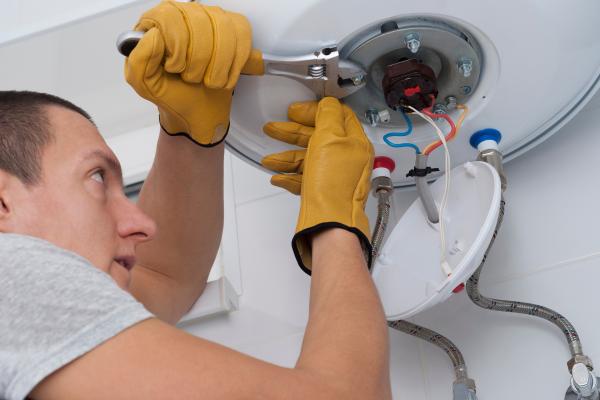New Homeowner's Guide: Everything You Need to Know About Your Property's Boiler


Even those of us living in warm climates know the importance of a reliable source of hot water. Hot water is an essential in any home, especially in terms of sanitation, hygiene and comfort. We need to make many different considerations when buying a new home, but the boiler is often overlooked. Do so at your peril, since buying a new one can set you back. oneHOWTO explains everything you need to know about your property's boiler with our new homeowner's guide.
What type of heating system do you have?
The first thing we need to consider is the type of heating system in the home. Different home heating systems need different boilers to function properly. The three main types of heating system are:
- Regular: also known as conventional boilers, these use a heat exchanger to bring the water to temperature. The cold water originates in a water tank above the boiler and the hot water is stored in a storage cylinder. Conventional or regular boilers can be open vented or in a sealed system, with the latter being more efficient.
- System: these types of boiler can be either gas fired or electric powered, operating off gas mains and the electrical grid, respectively. Water is heated in a closed water system and is then sent to a separate cylinder for storage, but does not require a cold water tank. This means it generally has better water pressure and is overall more reliable.
- Combi: a combination boiler requires neither a cold water tank nor a hot water storage cylinder. They heat water from the mains water supply on demand using a heat exchanger in the boiler. They are considered the most powerful and efficient, although their lack of a reserve can mean water runs out quicker during times of high demand.
Once you have worked out the type of boiler, you will need to determine its functionality.
DIY boiler assessment
Once you have worked out the type of home heating system, you will need to make an assessment. While this is best performed by a professional, you can take a quick look to see if it is operational. To do so, you will need to:
- Look at the boiler: a quick scan can reveal a lot. If the color on the boiler has faded, there is a lot of dirt around the cover or the parts look worn, it means your boiler is probably old. It may still be operational for now, but it won't be for long.
- Check individual parts: even if the boiler looks new, there may still be issues. Inspect the flue, pipe connections, external casing and any other parts for signs of damage. Leaks are a particular concern.
- Pressure gauge: check that the pressure gauge readings are accurate. The recommended range should be written in the boiler's manual. If you do not have it, you can look up the model number online.
- Check the system: even if the boiler seems fine, there may be other problems. You will need to check if the thermostat, controls, showers, taps and radiators are functioning properly.
- Noises: if there are any loud sounds which don't seem normal, it is a good indication of a problem.
- Insulation: the boiler system should be properly insulated, as should the entire home. This will help to avoid heat loss and improve energy efficiency.
You may have a new boiler and there are no obvious signs of a problem. Even so, it is a good idea to have a professional look at it.
Professional boiler assessment
You may have some obvious problems with the boiler. These include leaks or the boiler itself being in overall poor condition. Boilers that look fine aren't always working properly. Even if they seem to provide hot water, they may have issues with pressure or efficiency. These can cost you a lot of money in the long run.
If you are a new homeowner, you may need to contact trusted boiler technicians to fix problems with the heating system. You should also do it to provide a general assessment and determine if your boiler is meeting your specific home heating needs.
If you want to read similar articles to New Homeowner's Guide: Everything You Need to Know About Your Property's Boiler, we recommend you visit our Maintenance and home security category.




